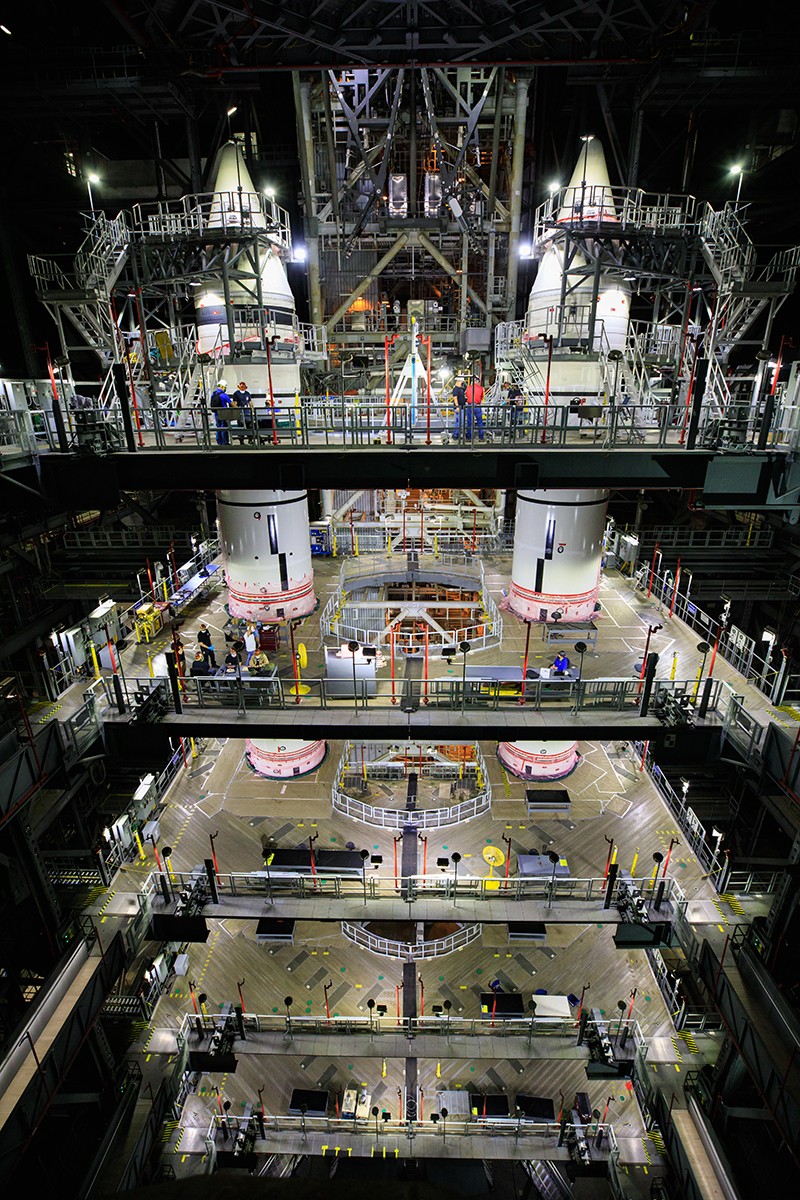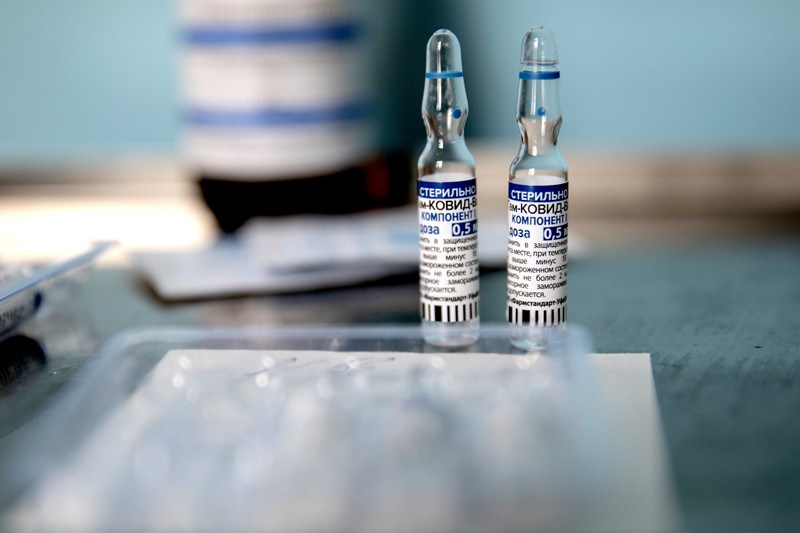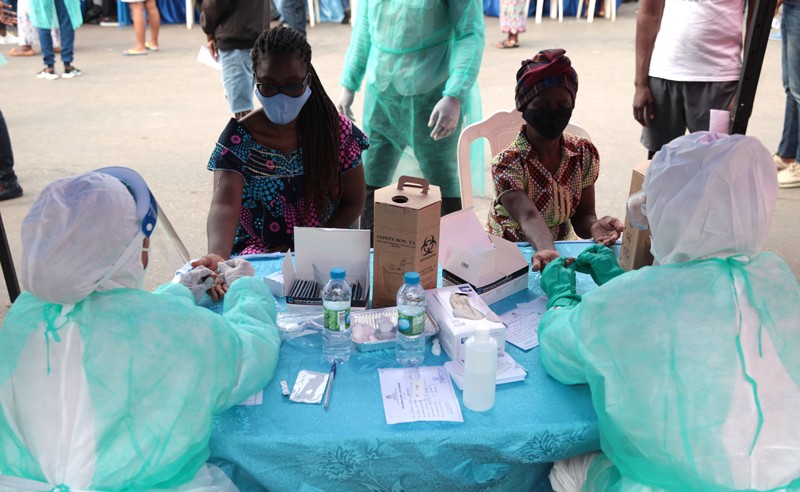NASA assembles powerful deep-space rocket
Engineers have assembled the twin booster rockets for NASA’s massive Space Launch System (SLS) — the first deep-space rocket since Saturn V, which sent astronauts to the Moon. Since November, workers have been using a huge crane to vertically stack segments of the boosters at the Kennedy Space Center in Florida.
The boosters will eventually be attached to the rocket’s 65-metre-long core stage, which is undergoing tests at Stennis Space Center near Bay St Louis in Mississippi. NASA is developing the SLS as part of its Artemis programme, which aims to land the first woman, and the next man, on the Moon by 2024.
Sputnik V vaccine is no match for a fast-spreading variant
A variant of the virus SARS‑CoV-2 detected in South Africa can evade antibodies elicited by the Sputnik V vaccine against COVID-19.
Many vaccines — including Sputnik V, developed in Russia — trigger the production of antibodies targeting the SARS‑CoV-2 protein called spike, which the virus uses to infect host cells. Scientists worry that the vaccines might be ineffective against SARS-CoV-2 variants with mutations in the spike-encoding gene.
Benhur Lee at the Icahn School of Medicine at Mount Sinai in New York City and his colleagues obtained samples of antibody-laden blood serum from 12 people vaccinated with Sputnik V (S. Ikegame et al. Preprint at medRxiv https://doi.org/f5h9; 2021). The authors tested the serum against benign viruses engineered to make the versions of spike found in certain SARS-CoV-2 variants. Eight of the 12 samples did not inhibit viruses equipped with spike from B.1.351, the variant identified in South Africa. But the samples effectively overcame viruses with spike from the B.1.1.7 variant, which was detected in Britain.
The emergence of variants might require a new generation of vaccines, the authors say. The findings have not yet been peer reviewed.
Air traveller yields a new variant bristling with mutations
A coronavirus variant identified in Angola carries more mutations than any strain previously identified.
A team led by Tulio de Oliveira, at the University of KwaZulu-Natal in Durban, South Africa, and Silvia Lutucuta, at the Angola Ministry of Health in Luanda, identified the variant after sequencing samples from three people who flew to Angola from Tanzania in February 2021 (T. de Oliveira et al. Preprint at medRxiv https://doi.org/f48g; 2021). The variant, named A.VOI.V2, carries 34 mutations, including 14 in the spike protein, which the virus uses to infect cells.
The variant deserves further study, the authors say, because it carries mutations that might help it to escape some people’s immune responses. The finding has not yet been peer reviewed.
"and" - Google News
April 14, 2021 at 03:30PM
https://ift.tt/3dZmoFK
Sputnik V, a host of coronavirus mutations and a rocket stack - Nature.com
"and" - Google News
https://ift.tt/35sHtDV
https://ift.tt/2ycZSIP
And
Bagikan Berita Ini


















0 Response to "Sputnik V, a host of coronavirus mutations and a rocket stack - Nature.com"
Post a Comment